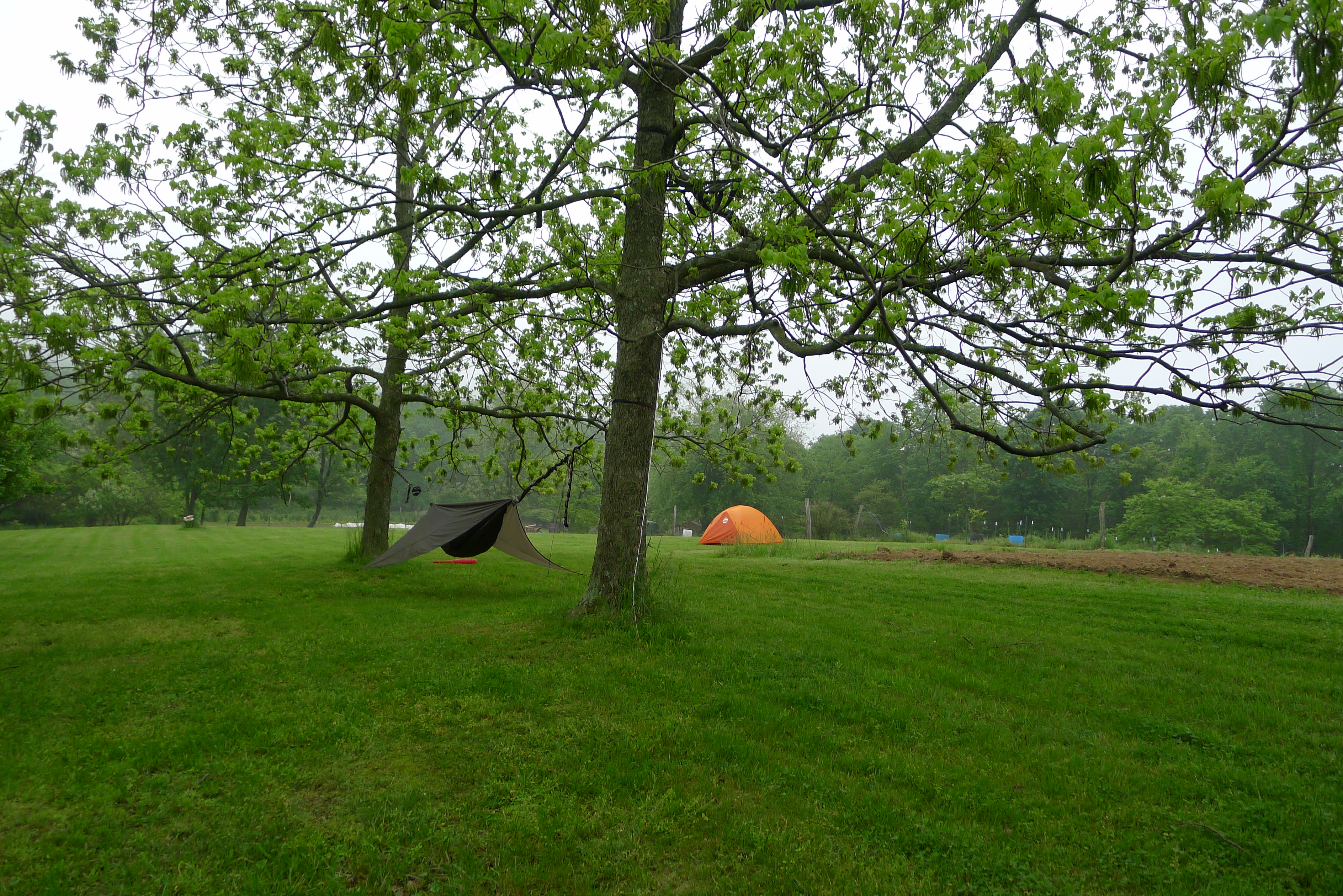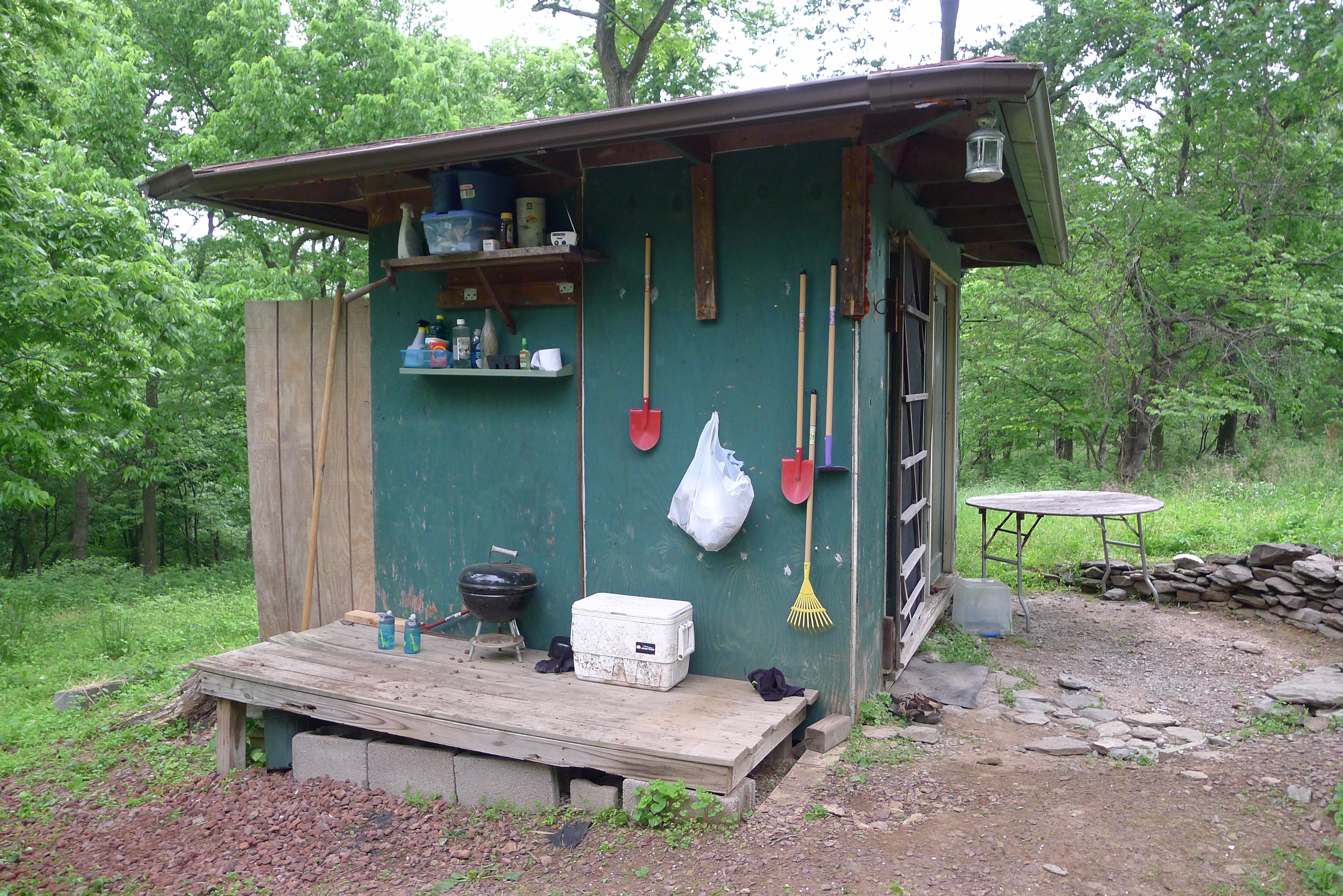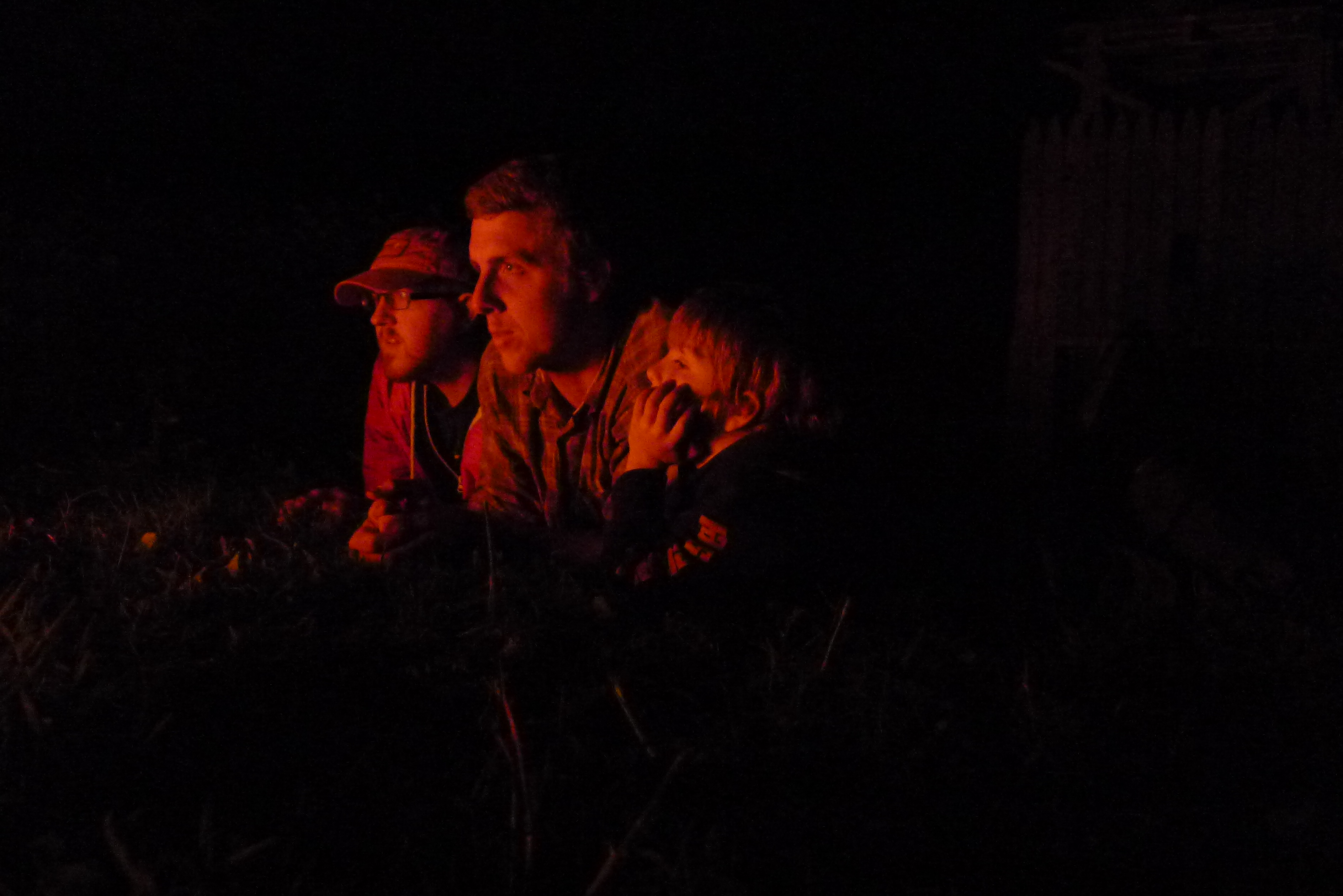I’m getting pretty pumped for a full summer in Las Vegas! My girlfriend will be working in Austin, Texas, so we’re driving across the country together. She and I are both from the same suburb of Baltimore, and our journey began there, giving us a chance to visit with our families before heading west.
This road trip, by the way, is the reason why you haven’t seen any blog posts lately and the reason why the next podcast won’t be up until tomorrow. Apologies for that. Hopefully a story about a bunch of people you don’t know and having nothing to do with poker will make up for it 🙂
On Saturday, we departed with a full car and a less-than-ambitious schedule for our first day. We made only about an hour’s progress westward, then stopped off in Boonsboro, a small town in western Maryland whose only claim to fame is as the hometown of New York Times bestseller list mainstay Nora Roberts.
My cousin and his wife are passionate about farming, and their family has made a lot of sacrifices to pursue that dream. They spent one summer living on a farm in West Virginia, without electricity or running water. Last year, they lived in a trailer on another farm, caring for the children of the owners the farm in exchange for the trailer and a few acres where they could grown their own vegetables. Both arrangements ultimately fell through because of conflicts with the owners, and now they live in a small town apartment and he works on a road crew.
Although money is tight, their home is full of passion, hard work, and love, so it’s an inspiring place to be. Also the kids – there are three now, ages 5, 2, and 5 months, all boys – love the shit out of my girlfriend and me, which makes it a lot of fun to visit.
We spent Saturday night at the newest farm where my cousin has been working on the weekends. He and his family stay in a small hut on the farm, and the kids get to enjoy the outdoors while their parents work. Sometimes the kids are even able to help. They have a great time there and have learned a ton about farming.
As soon as we arrived, the kids were eager to show us around. The hut where they sleep is extremely small but efficiently furnished. There’s a bed where the two older boys sleep, and a second mattress that pulls out underneath of it where the parents sleep with the baby. Outside is a large table, a firepit, a latrine, and a makeshift shower.
The boys helped us pitch our tent, by which I mean they fought over who would get to hammer in the stakes, in a nearby clearing. Then they led us to a nearby strawberry patch, where the oldest boy explained that we should pick only ripe strawberries, which would have no white on them at all. Only a couple fit the bill, but they were extraordinary, some of the best strawberries I’ve had. The 2-year old was not so diligent in his selection, and he frequently presented us with a handful of white berries, cackling mischievously when told they didn’t look so ripe.
My cousin’s wife joined us carrying a basket of freshly picked asparagus. She handed me a spear, and I gave her a look like, “What do you expect me to do with this?” I’m not wild about asparagus even when it’s cooked, and it never even occurred to me to eat it raw.
“Try it,” she said. “It’s totally different when it’s straight out of the ground.” It was. The freshly picked asparagus was sweet and tender, qualities I never would have associated with that vegetable.
When we got back to the hut, my cousin had a big fire going and was cooking couscous over it in a pot blackened from long use. I felt a little sheepish taking my new propane stove, still in its packaging, out of my car and setting it up on the table. I’d made a big batch of stir fry the day before, enough to reheat on the stove and share with everyone. For dessert there were s’mores, and soon the younger boys were cranky and ready for bed.
Usually the way it goes when we visit my cousin is that the boys demand our full attention while they’re awake, and then after they go to bed we stay up late talking with their parents. This time the oldest boy stayed up with us, though he mellowed considerably and seemed content to stare into the fire and let the grown ups talk.
Talking with my cousin is always interesting. Our lives are very different, but I think fundamentally we are similar people. We think about things in the same way, find the same things funny, etc. We’ve both chosen unconventional career paths and living situations that the rest of our family doesn’t fully understand, so I think we both benefit from our talks. I don’t get the impression that he has a lot of opportunities to talk philosophy with his coworkers on the road crew.
In other ways, though, we are like mirror opposites. While I have a lot of freedom but no clear idea of what I want to do, he has a clear goal but struggles to find the means to achieve it.
Western Maryland is full of “yuppy farmers”, people who have or had good jobs in DC for whom farming is a dream and a hobby. My cousin’s vision is different. He thinks that farming, like construction or heating and air conditioning, ought to be a viable blue collar career path, a way for an able bodied person to support a family through physical labor.
The problem is that isn’t. Despite all of their hard work and sacrifices, they haven’t been able to make it work, and without access to the credit and capital necessary to buy land, they fear they never will. Even owning the land isn’t essential to them, it’s just that they haven’t found a workable arrangement on anyone else’s farm. “We only aspire to be peasants” is how my cousin puts it. After a couple of false starts, they’re currently living in a town (albeit a small one), and he’s working a full-time job.
They haven’t given up, though, and this current farm is the latest attempt to live their dream. At the moment they’re only there on the weekends, which means that my cousin works seven days a week, but there’s potential to turn the gig into something more.
I try to share with him what little I’ve learned from poker. Don’t attach your self-worth to outcomes that are beyond your control. Make the best decisions that you can at each opportunity, and find satisfaction in what you are doing now. It’s very possible that they won’t be farming five years from now, but that needn’t be a failure. Spending their early years on farms has been an invaluable experience for the boys, something that they clearly love.
There’s always a lot of work to be done on a farm, but it’s work that’s done with the whole family around. Even the two-year old can help with some things, so work doesn’t have to trade-off with time spent with family, as it does for most people. They all have fond memories of setting up a greenhouse at their last farm, staying up late and listening to music while the four of them sprinkled seeds into hundreds of individual planters.
I grew up close with my many cousins, and the oldest of the boys, nearly four years my senior, was always my idol. As a young adult, he moved to Oregon, and probably ten years passed with my barely seeing him at all. He returned to the east coast with a wife and child, and now as adults we’ve become close again.
He is still my idol, a hard-working man who struggles tirelessly to balance his dreams and his principles with the realities of supporting a family. He can start a fire, butcher a hog, build a house, fix a car, and sow a field, but he also knows how to comfort his children, discipline them gently, teach and inspire them, and share his love and wisdom.
We didn’t travel far on the first day of our road trip, but we got off to a great start.




Great post. Good luck to your cousin. And good luck to you in Vegas. Enjoy the trip.
What does strawberry taste like?
A consumption of pure organic strawberries is like taking the red pill.
From now on the strawberries from supermarket will have real taste.
The strawberries will taste like vinegar made in China and they will smell of nail polish remover.
Fortunately a consumption of strawberries from supermarket is like taking the blue pill.
Great post.
I love that final picture. Really captures the spirit of the writing.
I agree, great picture!
beautiful post. I too come from farming. My grandpa grew Taro in Hawaii.
His kids, 11 of them. ran to the city because farming was so hard. But farming life was such a pure and honest way of living. Chewing on sugar cane from the fields was the best dessert.
Good luck on your travels.
What kind of farming are they looking to get into there? People have the same kind of issues here so its only really financially feasible if you are born into it, (especially when adding on the cost of buying live stock for dairy). Dad was set to inherit my great granddads but I think the social isolation of the job really got to him and mum so they did a big OE, retrained and moved into the city.
Vegetables. It’s probably something more specific than that, but that’s the part I can say for sure.